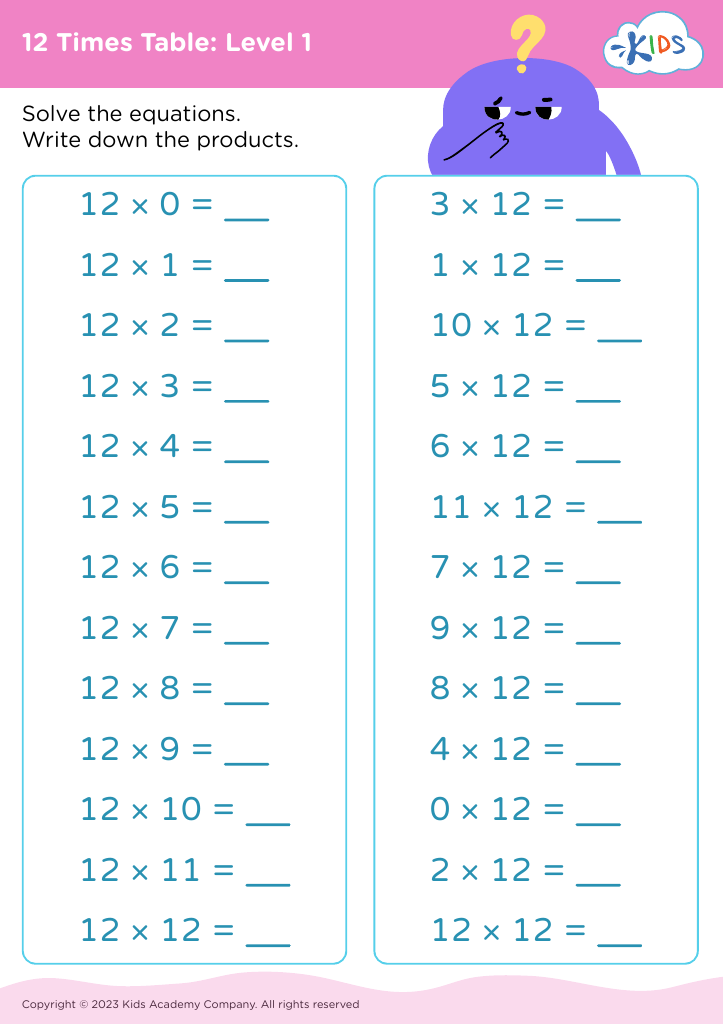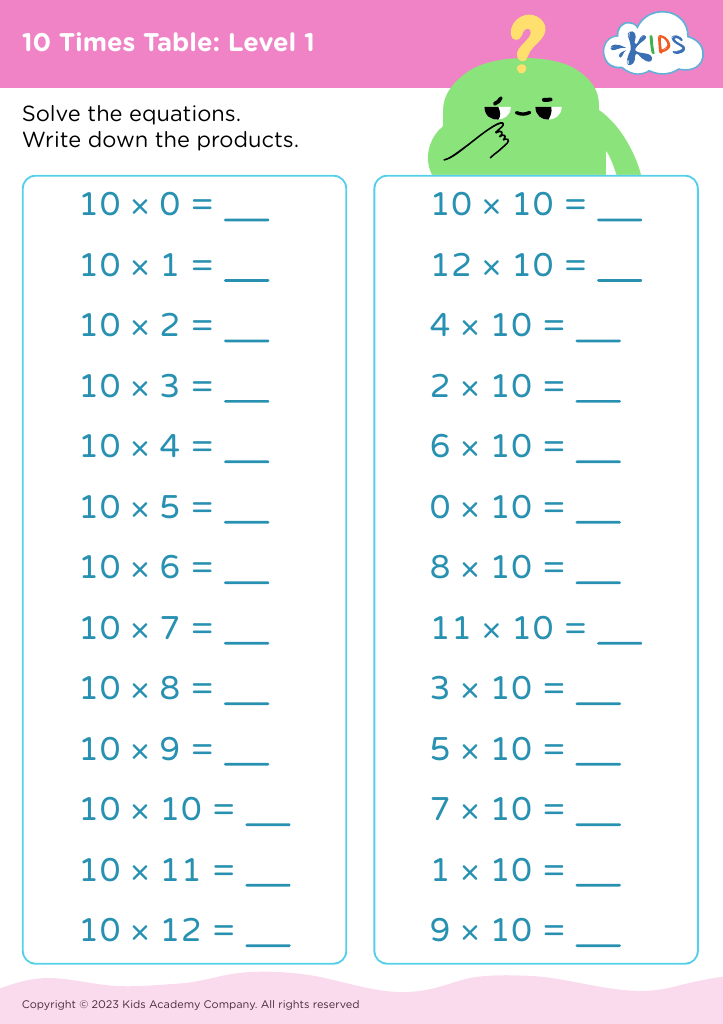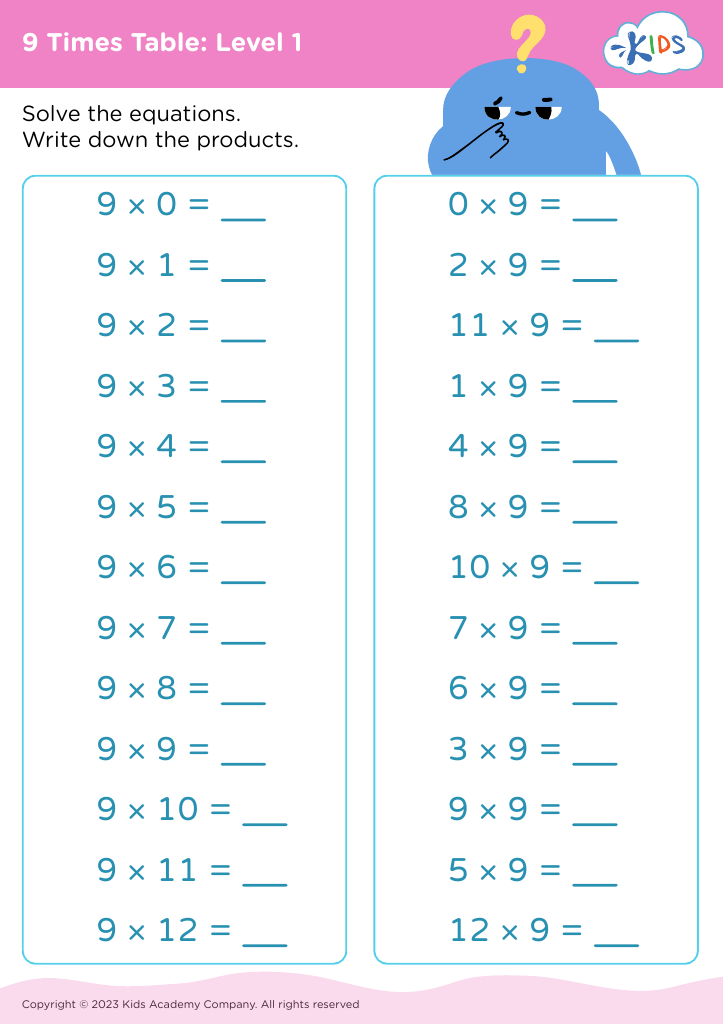Understanding patterns Easy Times Tables Worksheets for Ages 3-9
3 filtered results
-
From - To
Discover "Understanding Patterns Easy Times Tables Worksheets for Ages 3-9," a collection designed to make learning multiplication fun and engaging for young learners. These worksheets from Kids Academy help children grasp the basics of times tables through playful patterns and visually appealing activities. With a focus on ages 3-9, the worksheets build foundational math skills while ensuring that learning remains enjoyable. Perfect for both classroom and home use, these resources promote mathematical confidence and cognitive growth, laying a strong groundwork for future learning. Download now to ignite your child's interest in math with easy and effective times tables practice!
Understanding patterns and mastering easy times tables for children aged 3-9 is crucial for their cognitive and academic development. Patterns help children learn and understand the world around them. Recognizing and predicting patterns enhance problem-solving skills and logical thinking, core components of STEM (Science, Technology, Engineering, Mathematics) education. Demonstrating easy times tables through pattern recognition, such as showing the repetitive nature of multiples, fosters numerical fluency and confidence.
Early exposure to times tables sets a strong foundation for more advanced math topics. If kids grasp these concepts early, they will struggle less and excel more when they tackle complex arithmetic, algebra, and other higher-level mathematics in the future. Mastery of these basics makes math less intimidating and paves the way for a positive attitude towards learning in general.
Furthermore, practicing times tables supports memory retention, concentration, and discipline, valuable skills beyond academia. For parents and teachers, dedicating time to this aspect of learning reflects commitment to the child's overall development. Engaging activities and consistent practice can make learning these fundamental skills enjoyable and effective. Investing in teaching patterns and times tables early prepares children for long-term academic success and enriches their everyday problem-solving abilities.





















